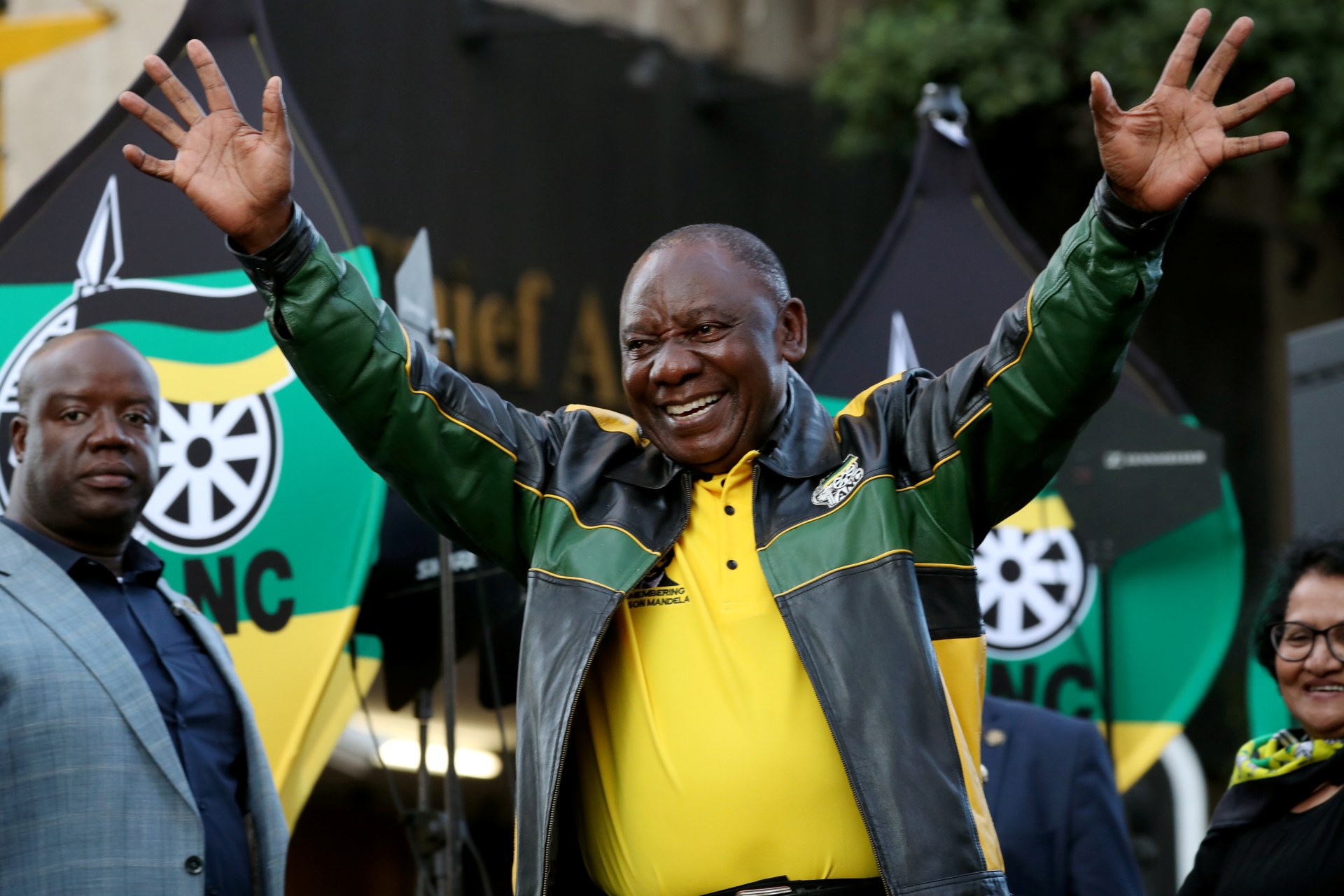South African Election Results Strengthen Ramaphosa’s Hand in the ANC

By experts and staff
- Published
By
- John CampbellRalph Bunche Senior Fellow for Africa Policy Studies
The governing African National Congress (ANC) won its smallest percentage of votes for national office ever in the 2019 elections, which took place on May 8. It won 57.51 percent over the vote, while the Democratic Alliance won 20.76 percent and the Economic Freedom Fighters won 10.79 percent; the remaining forty-five parties together won 10.94 percent, though most of them did not win enough to earn a seat.
The ANC’s vote share peaked in the 2004 national elections, when it received 69.69 percent of the vote, but it dropped to 65.9 percent in 2009 and to 62.15 percent in 2014. While the trajectory would appear to maintain its negative course through the 2019 national elections, the ANC’s showing in the most recent elections, the municipal elections in 2016, was just 53.9 percent. In those elections, the ANC lost Johannesburg and Pretoria for the first time since the end of apartheid. The 2016 ANC losses have been largely attributed to the failed leadership of Jacob Zuma, then leader of the ANC and president of South Africa, whose administration was mired in corruption and scandal. The elections of 2019 therefore represent an improvement for the ANC. Municipal elections still follow South Africa’s system of proportional representation, where voters vote for a party, not a candidate, hence they are still referenda on the parties.
Further, the ANC won a slight majority in Gauteng (Johannesburg and Pretoria), South Africa’s largest and richest province, despite predictions that it would fall below 50 percent. The improvement in the ANC’s results over 2016 strengthens the hand of Cyril Ramaphosa, party leader and South African president, as he seeks to reform the ANC internally and address corruption, especially within state owned enterprises.
Reflecting party anxiety over the erosion of its support at the polls, at the end of 2017, the ANC removed Zuma from the party leadership and, in 2018, from the presidency, a move orchestrated by Cyril Ramaphosa, then Zuma’s deputy president. However, bolstered by his populism and his patronage network, Zuma and his allies remain a powerful element within the ANC. Since Zuma’s removal, they have been actively engaged in seeking to block Ramaphosa’s reforms. Though Ramaphosa has moved to restore the integrity of government institutions undermined by Zuma and his allies, nobody has yet to go to jail for corruption. The improvement in the ANC election results under Ramaphosa’s leadership should strengthen his hand in the intra-party fight with Zuma. And perhaps those guilty of corruption will start to go to jail.